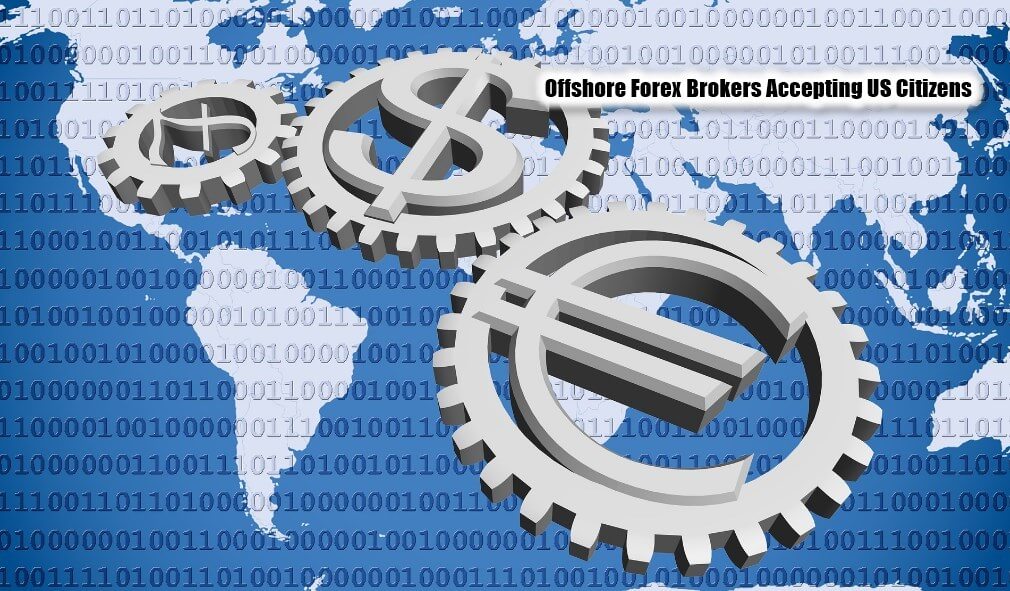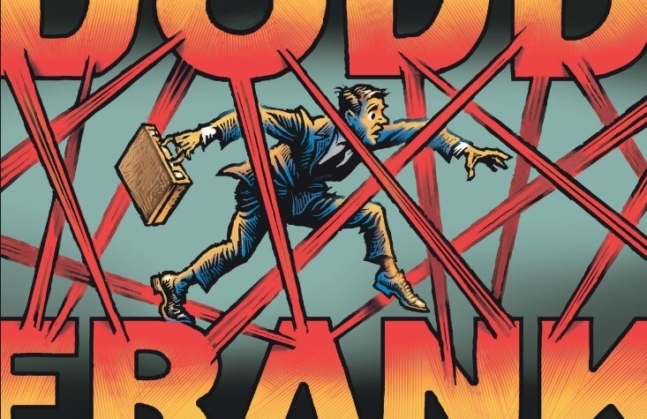- The Latest List Of Offshore Brokers Accepting US Residents
- What is Offshore Investing & Offshore Brokerage for US Citizens?
- Why Do US Citizens Need Offshore Brokers? What are the Constraints of US-Based Brokers?
- Why do Many Offshore Forex Brokers Decline US citizens to Open Accounts?
- Reasons Why Some Offshore Brokers Can Still Accept US Citizens
- Dodd-Frank Act Repeal – Latest Status / Forecasting
- Offshore Brokers FAQs
The Latest List Of Offshore Brokers Accepting US Residents
It’s time to free Americans from a severely restricted trading environment such as limited leverage, no hedging & FIFO rule set by the NFA & CFTC.
As of July 2025, 11 offshore Forex brokers accept US citizens.
We begin with the updated list of those offshore brokers (see the notes for the “Trusted” sign) though strongly suggest checking the Updated Listing Status section to know its dynamic nature, as well as the sections on specific advantages of offshore brokers, the reasons why they refuse US citizens, and why some still accept, etc. for your better understanding of this complicated offshore brokerage market to mitigate your risk.
Updated List Of Offshore Forex Brokers Accepting US Traders
Pacific / Asia
- LQDFX (the Marshall Islands/2015) => Changed to Plexytrade (St. Lucia) on 4 May 2024 Reportedly Trusted & Trusted — ECN/STP broker, not regulated, Segregated customer funds, Leverage up to 1:2000, Spreads from 0 pip, Min. initial deposit 20 USD (Micro and Islamic accounts), No Requotes, Scalping Allowed, EA Allowed, Bitcoin & Litecoin accepted, VLoad accepted, Swaps allowed except Islamic account / Website / Bonus Offer / Email: support(at)plexytrade.com
Central America / Caribbean
- SageFX (St. Vincent and the Grenadines/2020) Trusted — STP broker, not regulated, Segregated customer funds, Leverage up to 1:500, Spreads from 0.1 pip, Min. initial deposit 10 USD / Bitcoin accepted / Scalping Allowed, EA Allowed / trade Forex, Stocks, Indices, Metals, Oil & Gas, Commodities and Cryptocurrencies / Website / Email: support(at)sagefx.com
- Coinexx (St. Vincent and the Grenadines/2017) Reportedly Trusted — ECN broker, not regulated, Segregated customer funds, Leverage up to 1:500, Spreads EUR/USD 0.02 pips average, Min. initial deposit 0.001 BTC, No Requotes, Scalping Allowed, EA Allowed, Low Slippage, Bitcoin accepted / Website / Bonus Offer / Email: contactus(at)coinexx.com
- EagleFX (Dominica/2019) Reportedly Trusted & Trusted— ECN (for Forex)/STP(for Other Instruments) broker, not regulated, orders subject to requotes – arbitraging and sniping prohibited, Leverage up to 1:500, Spreads EUR/USD 1 pip, Min. initial deposit 10 USD, Bitcoin accepted / trade Forex, Spots, Crypto and Shares / Website / Email: support(at)eaglefx.com
- tradiso (St. Vincent and the Grenadines/2021) — ECN broker, not regulated, Segregated customer funds, Leverage up to 1:200, Spreads from 0 pips, Min. initial deposit 1 USD, Scalping Allowed, EA Allowed, Bitcoin accepted / trade Forex, Stocks, Indices, Commodities & Cryptocurrencies / Website / Email: support(at)tradiso.com
- AAFX (St. Vincent and the Grenadines/2015) — ECN/MM broker, not regulated, Segregated customer funds, Leverage up to 1:2000, Spreads EUR/USD 0.6 pip, Min. initial deposit 100 USD / trade Forex, Stocks, Indices, Metals, Oil & Gas, Commodities and Cryptocurrencies / Website / Bonus Offer / Email: support(at)aafxtrading.com
- FXGlory (St. Vincent and the Grenadines/2011) — MM broker, not regulated, Segregated customer funds, Leverage up to 1:3000, Spreads EUR/USD 2 pips, Min. initial deposit 1 USD, Scalping Allowed, EA Allowed, Bitcoin accepted / Website / Bonus Offer / Email: Info(at)fxglory.com
Africa / Middle East / Persian Gulf
- Hanko Trade (Seychelles/2018) — ECN/STP broker, not regulated, Leverage up to 1:500, Spreads from 0.0 pips (ECN), Min. initial deposit 100 USD, Bitcoin accepted, Scalping allowed / Website / Email: contact(at)hankotrade.com
- Hugo’s Way (Seychelles/2017) — ECN/STP broker, not regulated, Leverage up to 1:500, Spreads from 0.5 pips (EUR/USD), Min. initial deposit 10 USD (STP), Bitcoin accepted, Scalping allowed / Website / Email: support(at)hugosway.com
UK / Europe
- Renesource Capital (Latvia/1998) — ECN/STP broker, regulated by Latvia Financial and Capital Markets Commission (FCMC) / Website (in the course of our Renesource Capital review, Renesource Capital told us that all customers planning to deposit more than 3’000 EUR to the trading account per month, they need to physically visit their office to go through KYC as a regulatory requirement. So, unless you are able to visit Latvia, don’t deposit over 3,000 EUR / month or don’t open an account.)
Offshore Brokers Listing Status
Bear in mind that there is no assurance that these offshore brokers will keep accepting US Citizens. We have been presenting this list for 9 years and have seen a reducing number of brokers year by year.
In the early 2010s, the number of offshore brokers accepting US clients was over 100, but now it’s merely around 10.
They may stop it spontaneously like the below 2 brokers;
FXChoice & Trader’s Way
FXChoice & Trader’s Way offshore brokers stopped accepting US Clients last year. However, both of them replied to our inquiry related to the existing US customers in a positive manner as below;
Please be informed that the restriction only applies to clients coming from the countries on the list specified on our website (including the US). However, those clients who already have an existing account with us will continue to enjoy the top level service they have grown to expect here at FXChoice; the same trading environment and conditions will remain available to them. (FXChoice)
Already opened account is not affected. (Trader’s Way)
What Happens After They Stop Accepting the US Clients
After they decided not to accept US traders, there are 3 cases;
- some still allow the US Citizens to keep trading as long as the traders registered & opened an account before they close the door such as the above FXChoice & Trader’s Way cases
- some still allow the US Citizens to keep trading as long as the traders had an active account (means actually deposited & traded before they close the door)
- some brokers asked all the US registered traders to leave (but don’t worry you can, of course, withdraw all your account balance).
So, if you decide to open their account, suggest doing at least 1 deposit and trading your real money (not just a demo account), which will increase the chance of maintaining your account even after they decide not to accept the US clients down the road.
As you see in our update of “Dodd-Frank Act* (this is the root of all evil) Repeal – Latest Status / Forecasting” later, there is very little chance that the US’s harsh regulation toward Forex trading will change anytime soon.
This means that if you would seek better trading environments, there are no other choices than using the above Offshore Forex Brokers.
*Remember the Dodd-Frank Act affects the brokerage but not you as an individual. So, as long as you report what is required to IRS, you are not subject to be punished because US citizens can use offshore brokers legitimately.
Offshore Brokers Notes
- The list does include many Unregulated Forex Brokers and you may want to make careful due diligence (in any case, firstly visit their site and see if you have good chemistry, don’t underestimate this aspect since you will use the site every day for a long term).
- Broker Type Abbreviation is as follows;
1) ECN: Electronic Communication Network 2) STP: Straight Through Processing 3) NDD: Non-Dealing Desk 4) DD: Dealing Desk 5) MM: Market Maker
1), 2) & 3) allow you to trade directly with the market (means major banks, etc) without a middleman (the broker’s dealing desk) while 4) & 5) are via (or controlled) by the middleman.
Some brokers are hybrid such as DD/STP, which means they have both systems. In short, you may want to select 1), 2) & 3) rather than 4) & 5). For the detailed rationale, please check Select Trusted Forex Brokers With No Hidden Agenda.
- This data source is offshore babypips though we refined the original information by updating, adding our own assessments & our members’ feedback when we feel value for our readers. There are a few brokers we marked “Reportedly Trusted” which are in line with the original list based on the below criteria:
- honesty and transparency in advertising their services, and in handling the funds, and executing the trades of their clients
- compliance with the laws and regulations of the country in which they are domiciled” (so, currently they are considered the best forex brokers for US clients outside the US soil)
Besides, we also added the “Trusted” mark in blue, this comes from our own 9,600+ members’ feedback (possibly a bit biased though), just for your information.
What is Offshore Investing & Offshore Brokerage for US Citizens?
Twisted Image/Fact of Offshore Investment & Offshore Broker
Offshore investing using an offshore brokerage account is often associated with wicked & unscrupulous politicians, ultra-rich, multi-national corporations, or gangsters who use offshore investment as havens for tax evasion or money laundering, etc.
Although it is true that there are always such instances of shady deals, the vast majority of offshore investment at offshore brokerage accounts is absolutely legal. Then, are offshore brokers safe? Basically, Yes.
The modern offshore centres, especially after the incident of Panama Papers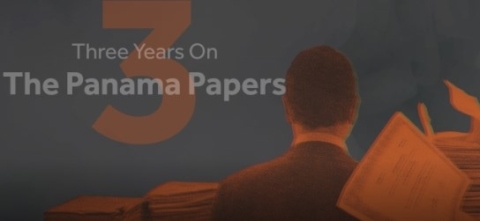 , tighten their safety, which allows legitimate investors & traders to make the best use of higher rates of return (and/or lower rates of tax on that return) offered by offshore brokerages operated in those domiciles.
, tighten their safety, which allows legitimate investors & traders to make the best use of higher rates of return (and/or lower rates of tax on that return) offered by offshore brokerages operated in those domiciles.
So, can US citizens trade forex overseas? Yes, no US law prohibits US residents from trading outside the US.
The general advantage to using offshore stock brokerage or forex broker (in other words, overseas forex trading) is that such operations are both legal and less costly than those offered onshore, namely the trader’s country, in your case the USA.
Offshore Forex Broker Meaning for US Citizens
The definition of Offshore investing is simply to keep your fund in a jurisdiction other than your country of residence, so an offshore broker meaning for US citizens is just trading in the Forex Broker domiciled outside the US. The offshore stockbroker also exactly applies to this meaning.
Allow me to repeat that despite its negative perception, it’s legal for US residents to trade with offshore forex brokers and it’s a very effective way to invest in the entities & services that are only available outside the US.
However, not all offshore forex brokers accept US citizens.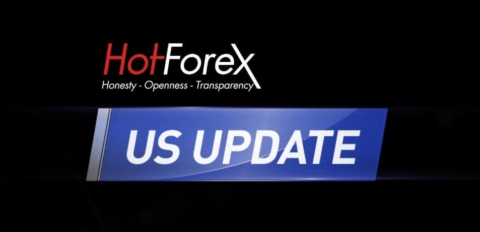 We constantly receive questions like;
We constantly receive questions like;
- “Does Pepperstone accept US clients?” The answer is No.
- “Does FXCM accept US traders?” The answer is No.
- “Are there any FXTM US Clients?” Again, the answer is No.
- “Does IG accept US clients?” Yes, but not in the same conditions as the UK.
- People have different questions for different reasons, which include “What are Forex brokers that accept VLoad?”, “What are the best offshore brokers for day trading?” or “Why can some overseas forex brokers accept us clients?” etc.
- You may find most of the answers to these popular questions in this guide. However when it comes to the question of “Which is the Best Forex Broker for US Clients?”, “Which is the Best Offshore Broker for day trading?” or “Which is the Best Offshore Stockbroker?”, depending on each individual trader’s needs.
Importantly, don’t blindly count on the sites recommending certain brokers based on the reviewer’s subjective judgment.
For the unregulated offshore brokers, our priority is safety & security, thus we emphasize & remark the “Trusted” sign to each offshore Forex broker name based on our registered members’ input (as of now we have around 12,000+ members) as well as various forums’ assessments.
Anyhow, let’s start with the basic question Why Do You US Citizens Need Offshore Brokers? Are there any real advantages other than less costly (thus possibly the case of tighter spread & lower commission)?
Why Do US Citizens Need Offshore Brokers? What are the Constraints of US-Based Brokers?
Forex brokers in the US are regulated by the National Futures Association (NFA) and the Commodities and Futures Trading Commission (CFTC) which publishes Commitments of Traders (COT) Reports every Friday, around 2:30 pm EST.
The regulatory framework set out by these two bodies is often found too strict for free trading, which means the forex brokers regulated by NFA & CFTC are not necessarily the best forex brokers for many forex traders.
A few examples of rules US Forex Brokers must follow are;
Limited Leverage
The CFTC released the new trading rules regarding the use of leverage and margin by clients in 2010.
It sets out a leverage requirement of 1:50 for individual forex traders and 1:20 for options traders, while at least 1:100 is an absolute global standard.
This means the US traders have limited power to earn in comparison to other players.
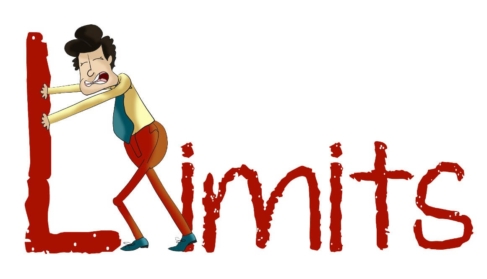
No Hedge & FIFO
With the NFA rules, US brokers no longer allow hedge and they need to implement FIFO (First In First Out).
Hedging is simply coming up with a way to protect yourself against big losses namely a trader that is long a foreign currency pair, can protect oneself from downside risk, while a trader that is short a foreign currency pair, can protect against upside risk.
However, the NFA’s FIFO rule specifies that if you open more than one position on a currency pair, you must close the first before closing the second one, which is a not-so-straightforward way of preventing hedging.
This FIFO has never become common outside the US, which means offshore brokers are usually non-FIFO forex brokers.
OFAC Restrictions
The Office of Foreign Assets and Control (OFAC) has placed limitations on who US forex brokers can accept into their network. Nationals of countries on the OFAC blacklist are not permitted to open forex trading accounts with US forex brokers.
Those from affected countries who already operated accounts with US forex brokers had their accounts shut down as a result. US forex brokers, therefore, have to operate within pretty stringent guidelines and so they tend to restrict their business to a certain class of traders.
No Longer Credit Card
The NFA announced in June ’14 that its board has approved banning the use of credit cards for funding Forex accounts.
The impending ban was viewed as possibly being a huge blow to US Forex firms, who depending on the firm are estimated to have between 3% to 35% of their deposits in the form of credit cards.
Specifically, brokers with smaller size deposits were expected to be especially affected by the ban. The fact is NFA already made it Effective on 31 January 2015. after the approval of the CFTC in December 2014.
Pattern Day Trader (PDT) Rule
When it comes to stock trading, Pattern Day Trader, a.k.a. PDT rule requires you to maintain a minimum balance of at least $25,000 if you execute 4+ day trades in 5 consecutive business days, provided the number of day trades is more than 6% of the total trades in the account during that period.
This rule was established in 2001 by the Financial Industry Regulatory Authority (FINRA – Day Trading Margin Requirements) and the U.S. Securities and Exchange Commission (SEC – PDT).
I assume that $25,000 is a sizable risk for many traders, especially for newbies who want to start a day trading career, which sets a very high hurdle to participate in the market.
Therefore, I can easily imagine many US traders seeking the best offshore stock brokers with no PDT rule.
So you have many reasons for Not Using US Forex Brokers but Using Brokers with Better Trading Conditions, More Freedom, and More Convenience which are available with Offshore Brokers.
But, can US citizens practically trade forex overseas?
Why do Many Offshore Forex Brokers Decline US citizens to Open Accounts?
Unfortunately, a good number of regulated international Forex brokers operating offshore do not accept US residents to open an account with them.
There are strict regulations that limit doing business with US citizens originating from the US government. Below is the primary reason why almost all offshore international Forex brokers do not accept US citizens now.
Dodd-Frank Act
The Dodd-Frank Wall Street Reform and Consumer Protection Act is a federal statute that President Obama signed into law. It first became operational on July 21, 2010. The act brought forth new rules that are designed to regulate all financial markets including stocks, futures, options, and Forex.
Dodd-Frank Act requires that Forex brokerage company that wants to do business with US citizens must first be registered with Commodity Futures Trading Commission (CFTC) and National Futures Association (NFA).
Many international Forex brokers find this a very difficult and costly operation with more reporting requirements as shown by the HBR report.
Many of them are still not registered with these two bodies. They are mostly legitimate and regulated offshore brokers. To avoid the paper mess, they stop accepting US citizens to open an account with them. It is easier for them to decline the US citizens than incur unforeseen expenses.
So the Dodd-Frank Act is the primary reason that has forced international offshore Forex brokers to decline US citizens (CFTC final release & final rules regarding retail foreign exchange transactions)
As a result, US citizens desiring to trade Forex are forced to open US Forex accounts and trade with very low leverage, namely 1:50 and 1:20 on majors and minors respectively.
It means you often have no choice but to deposit a lot of money in your account if you want to trade safely and get anywhere financially without getting a margin call that would normally wipe out a small deposit depending on the lot size of your choice.
So, in essence, the Dodd-Frank Act indirectly, even if unintentionally, makes it harder for the small trader in America to trade Forex, but it is not a problem for those who are already rich and have enough extra income they can afford to use in a US Forex account.
Reasons Why Some Offshore Brokers Can Still Accept US Citizens
Despite the regulation, there are chances US citizens can open an account with international brokers not registered by US regulatory bodies – NFA and CFTC.
However, this is done under certain different conditions. Such offshore brokers are allowed to accept US clients only under their US-based affiliate brokerage firms.
Let me quote the discussion from the babypips.com forum as;
The CFTC has U.S. forex brokers by the throat: by threatening their ability to do business in the U.S., the CFTC can interfere with the rights of those brokers to do business outside the U.S. and the CFTC has his tentacles deep inside many foreign governments, through a series of nasty, little agreements known as Memoranda of Understanding.
These agreements have effectively extended U.S. regulation to cover U.S. residents doing business in countries which have signed the agreements.
There are yet the countries where these agreements do not exist. And there are a few offshore brokers, in Memorandum countries, who have the courage to defy the over-reaching U.S. regulatory authorities, and welcome U.S. residents as clients, and to consider client relationships with them.
And under the current law, the CFTC has no authority over individual traders who trade through foreign brokers that are beyond the reach of U.S regulation.
The U.S. government claims the authority, through the IRS, to require U.S. residents to report foreign accounts which people hold, bank accounts, brokerage accounts, etc, which has been automatically reported under FATCA (Foreign Account Tax Compliance Act) started in July ’14.
But, they cannot yet prevent US citizens from having those accounts.
From another perspective, the non-US Forex brokers who are affected by the Dodd-Frank act are those that are regulated in their own countries. This means the brokers in the countries where Forex itself is not regulated such as Finland can accept US citizens without being bothered by the Dodd-Frank act.
Remember the Act affects the brokerage but not you as an individual, as long as you report what is required to IRS, you are not subject to be punished.
Regulation Inquiry
I explained the reason why some offshore Forex brokers can accept US clients as;
the brokers in the countries where Forex itself is not regulated such as Finland can accept US citizens without being bothered by Dodd-Frank act.
I picked Tallinex (St. Vincent and the Grenadines) & TradeWise FX (I quoted Tallinex’s answer to check if they have common understandings) as examples and sent an inquiry about Regulation, then the answers I received (Note; both of these brokers no longer accept US Citizens, thus this info are already history, but just FYI);
Tallinex
TradeWise FX
But, remember, the fact remains that their business is not regulated, so you need to be cautious.
Let me reiterate that, it’s essential to make minimum Due Diligence before you open an account in any of the above brokers, especially for Not Regulated ones, because as North American Securities Administrators Association (NASAA) warned that there are still a lot of Forex Fraud.
Needless to say, forex brokers requiring no KYC are out of the question.
Dodd-Frank Act Repeal – Latest Status / Forecasting
Trump Administration
Lastly, let me update the regulatory movement. Donald Trump & Republicans were eager to deregulate the financial sector and pleaded to dismantle the Dodd-Frank act as below;
There already is legislation being debated in the US Senate called the Financial Choice Act, but it is unlikely to pass as is. Nevertheless, Trump’s transition team may still consider passing bits of the new law that may repeal Dodd-Frank, if only to a small degree.
These updates have perked brokers’ ears, and many of them are considering a return to the US FX market. In fact, they may not even have to set up headquarters within the US, but may probably be allowed to sign up US clients once again. The specific date to repeal Dodd-Frank is not known, nor is the road going to be easy, but it may soon come to pass in which case the Forex industry may experience a major shift. forex news now
Actually, “Congress just approved a bill to dismantle parts of the Dodd-Frank banking rule” and Trump signed the bill.
Harsh Reality – Latest News, Current Status & Future Prediction
However, what is the real effect on Forex Industry & Forex Brokers?
Brookings issued an interesting article titled “No, Dodd-Frank was neither repealed nor gutted. Here’s what really happened“, which points out several misconceptions about the repeal. The Balance’s article of “Dodd-Frank Wall Street Reform Act 8 Ways a Repeal Hurts You” clearly identifies;
In summary, the key changes are Watering down bank regulation, Dismantling the CFPB & Loosening the Volcker Rule.
This Brookings webinar “A decade of Dodd-Frank” will give you a good latest update.
Biden Administration
Back to the Democratic regime where Obama & Biden set the Dodd-Frank Act, there should be no signs of changing the Act.
As Brookings reported, Biden’s priority is to appoint strong financial regulators to implement the Act.
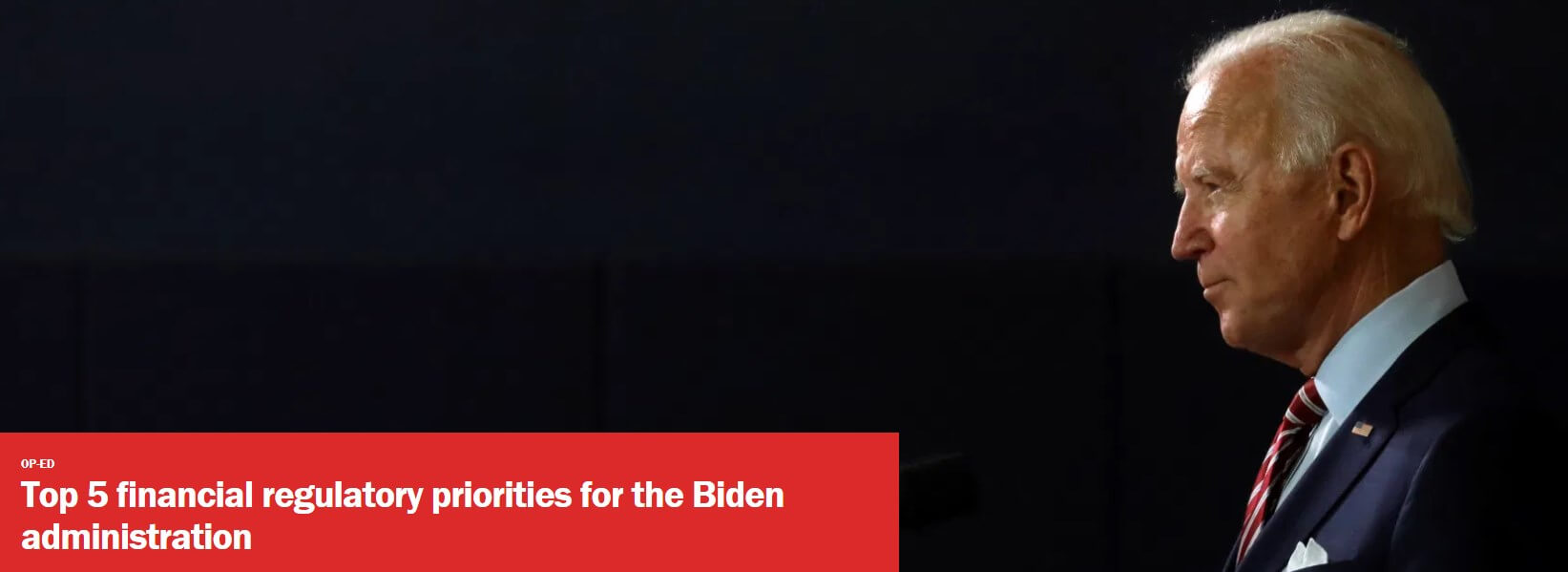
The bottom line is when it comes to the US’s harsh regulation toward Forex Industry, nothing has changed and we foresee no optimistic prediction.
Follow Success Model & Use World Best Tools
Finally, allow me to remind you that almost all offshore brokers you will find here enable you to trade with large leverage, scalping with EAs & grid-based trading with hedging, etc.
Surely, these are the benefits you US traders look for but at the same time, they require a high level of risk management. Therefore, strongly suggest you go through the Successful Forex Model with Powerful Tools & List of Most Profitable Forex EAs & Signals.
These guides comprehensively explain how you can evolve Forex Trading successfully by using world-top-class tools & the full list. 95% of forex retail traders are estimated to fail. The 5% winners are only Institutional Traders & very experienced Professionals.
Most probably you are an experienced trader since you’re looking for better trading environments than US brokers.
But, usually, it’s difficult for even such traders to achieve consistent profits in the newly liberated trading conditions from the outset. So, take a look at the above Special guides which we believe are worth your time.
We set 2 Meditation videos for Traders, go to the Latest News section in the Successful Forex Model, you may want to go through it every day, which will definitely improve your trading psychology and thus trading performance.
Offshore Brokers FAQs
1) allow you to keep trading as long as the traders registered & opened an account
2) allow you to keep trading as long as the traders had the active account (means actually deposited & traded)
3) ask you to leave (but don’t worry you can withdraw all your account balance)
, and majority looks 1) & 2).
Good Luck!!
Joshua Walker (bio)
Editor – Global Extra Money (GEM)
